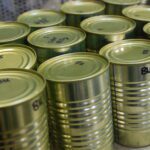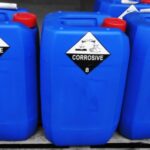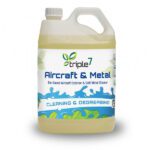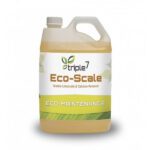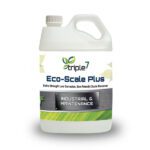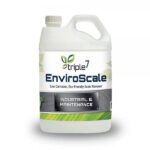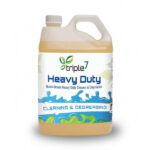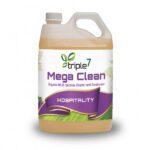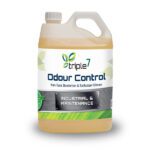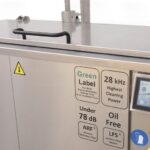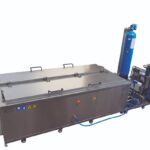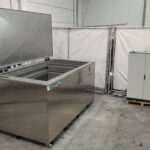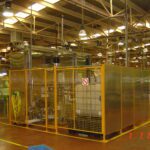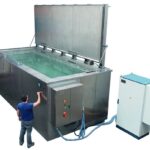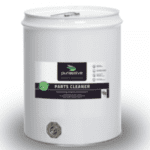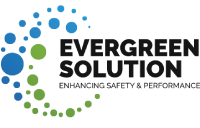Table of Contents
Introduction
Ammonia is a powerful cleaning agent that can be used in a variety of cleaning tasks. However, it can be hazardous if not used properly, and there are certain surfaces and areas where it should be avoided. In this article, we will explore the uses of ammonia as a cleaner, its hazards, and alternatives to using ammonia.
Where to Use Ammonia as a Cleaner
Ammonia can be an effective cleaner for a variety of surfaces, including:
Windows and Mirrors: Ammonia is great for cleaning windows and mirrors as it can leave a streak-free shine. Mix one part ammonia with three parts water and apply the solution to the surface using a spray bottle. Wipe the surface with a clean cloth or paper towel.

Kitchen Appliances: Ammonia can help clean greasy kitchen appliances such as stovetops, ovens, and microwaves. Mix one part ammonia with one part water, apply the solution to the surface, and let it sit for a few minutes. Scrub the surface with a brush or sponge, and rinse with water.
Floors: Ammonia can be used to clean hard floors such as tiles and linoleum. Mix one cup of ammonia with one gallon of water, apply the solution to the floor using a mop, and rinse with clean water.
Laundry: Ammonia can be added to the laundry as a stain remover and whitener. Add one cup of ammonia to the wash cycle along with your regular laundry detergent.
Where to Avoid Using Ammonia as a Cleaner
While ammonia can be a useful cleaner, there are certain areas and surfaces where it should be avoided, including:
Industrial Parts Made of Mild Steel: Its best to avoid Ammonia on surfaces of Industrial and Engineering goods that are made of mild steel ., as it would tend to etch or corrode if the part is left immersed for a short time.
Wood: Ammonia Cleaner can damage wood surfaces, causing them to discolor and warp. Avoid using ammonia to clean wood furniture and floors.
Brass and Copper: Ammonia can corrode brass and copper surfaces, causing them to tarnish. Avoid using ammonia to clean these materials.
Acrylic and Plastic: Ammonia can cause acrylic and plastic surfaces to crack and discolor. Avoid using ammonia to clean these materials.
Mixed with Bleach: Mixing ammonia with bleach can create toxic fumes, which can be harmful to your health. Always avoid mixing ammonia with bleach or any other household cleaner.
Alternatives to Ammonia Cleaners
If you are looking for alternatives to using ammonia, there are several options available, including:
Biosurfactants: The new kid in the block, biosurfactants are derived from fermentation process using wheat , curds or many other food based ingredients. However safe and biodegradable they are ., its worthwhile to mention that they are relatively more expensive and difficult to source.
Oleo Based Cleaners: Derived from the oils of crop plants, Oleo based cleaners are safe , low in cost and also biodegradable.
Enzymatic Cleaner: Made from enzymes derived from proteins, carbonydrates, sugars andlipids, these cleaners are extremely economical, safe and simple to use and dispose off.
d-limonene:The perfume of organge tempts most users into thinking that d-limonene is a moderate cleaner. But this orange peel extract performs as well as any known chemical or bio-based product like a biosurgactant, enzu=yme , Oleo Cleaner.
Vinegar: Vinegar is an effective cleaner that can be used to clean a variety of surfaces. Mix equal parts of vinegar and water and apply the solution to the surface using a spray bottle.
Baking Soda: Baking soda can be used as a mild abrasive cleaner for surfaces such as sinks and tubs. Mix baking soda with water to form a paste and apply it to the surface using a sponge or cloth.
Hydrogen Peroxide: Hydrogen peroxide can be used as a disinfectant and stain remover. Mix equal parts of hydrogen peroxide and water and apply the solution to the surface using a spray bottle.
Lemon Juice: Lemon juice can be used to clean and disinfect surfaces. Mix equal parts of lemon juice and water and apply the solution to the surface using a spray bottle.
Conclusion
Ammonia can be a useful cleaner for a variety of surfaces, but it can also be hazardous if not used properly. Always follow the instructions on the label and wear protective gloves and goggles when using ammonia. If you prefer not to use ammonia, there are several alternatives available that can be just as effective for cleaning. Just take into consideration your budget, availability of the cleaner, the compatibility with the cleaning surface and weather you would like to us it by spraying, misting , soaking, heating or in specialized cleaning machines.



